Bowling for Columbine is a 2002 American documentary film written, produced, directed, and narrated by Michael Moore. The film explores what Moore suggests are the primary causes for the Columbine High School massacre in 1999 and other acts of violence with guns. Moore focuses on the background and environment in which the massacre took place and some common public opinions and assumptions about related issues. The film also looks into the nature of violence in the United States.
| Bowling for Columbine | |
|---|---|
Theatrical release poster | |
| Directed by | Michael Moore |
| Produced by | Michael Moore Kathleen Glynn Jim Czarnecki Charles Bishop Michael Donovan Kurt Engfehr |
| Written by | Michael Moore |
| Narrated by | Michael Moore |
| Music by | Jeff Gibbs |
| Edited by | Kurt Engfehr |
Production companies | Alliance Atlantis Dog Eat Dog Films Salter Street Films United Artists |
| Distributed by | MGM Distribution Co. |
Release date |
|
Running time | 120 minutes |
| Country | United States |
| Language | English |
| Budget | $4 million |
| Box office | $58 million |
A critical and commercial success, the film brought Moore international attention as a rising filmmaker and won numerous awards, including the Academy Award for Best Documentary Feature, the Independent Spirit Award for Best Documentary Feature, a special 55th Anniversary Prize at the 2002 Cannes Film Festival, and the César Award for Best Foreign Film. The film is considered one of the greatest documentary films of all time.
Screenplay
In Moore's discussions with various people—including South Park co-creator Matt Stone, the National Rifle Association's then-president Charlton Heston, and musician Marilyn Manson—he seeks to explain why the Columbine massacre occurred and why the United States' violent crime rate (especially concerning crimes committed with firearms) is substantially higher than those of other nations.
Bowling
The film's title refers to the story that Eric Harris and Dylan Klebold—the two students responsible for the Columbine High School massacre—attended a school bowling class at 6:00 AM on the day they committed the attacks at school, which started at 11:17 AM. Later investigations showed that this was based on mistaken recollections, and Glenn Moore of the Golden Police Department concluded that they were absent from school on the day of the attack.
Moore incorporates the concept of bowling into the film in other ways as well. For example, the Michigan Militia use bowling pins for their target practice. When interviewing former classmates of the two boys, Moore notes that the students took a bowling class in place of physical education. He suggests that this might have very little educational value and the girls he interviews generally agree, noting how Harris and Klebold led introverted lifestyles and careless attitudes towards the game, and that nobody thought twice about it. Moore questions whether the school system is responding to the real needs of students or if they are reinforcing fear. Moore also interviews two young residents of Oscoda, Michigan. Moore suggests a culture of fear created by the government and the media leads Americans to arm themselves, to the advantage of gun-making companies. Moore suggests that bowling could have been just as responsible for the attacks on the school as Marilyn Manson, or even President Bill Clinton, who launched bombing attacks on Serbia at the time.
Free gun for opening a bank account
An early scene depicts a bank in Michigan that gives customers a free hunting rifle when they make a deposit of a certain size into a time deposit account. The film follows Moore as he goes to the bank, makes his deposit, fills out the forms, and awaits the result of a background check before walking out of the bank carrying a brand new Weatherby hunting rifle. Just before leaving the bank, Moore asks: "Do you think it's a little dangerous handing out guns at a bank?"
In Michael Wilson's documentary Michael Moore Hates America, bank employees from the branch at which Moore is handed a free hunting rifle assert that they were misled during filming of the segment. They say that the bank's policy was to conduct background checks on rifle recipients and mail the rifles to a licensed gun dealer, but Moore's agents, under the pretext of "doing a story on unique businesses across America", convinced bank employees to have his rifle presented to him on camera the morning after filming his account opening. Further, they counter that contrary to the film's supposition that the bank kept hundreds of guns on their premises, the gun which was handed to Michael Moore in the film was shipped overnight from a vault in a branch 300 miles away. Moore denied that this sequence was staged but acknowledged the timing of events was compressed for production reasons. He reminded his readers that North Country Bank is a licensed firearms dealer and, in addition to its ATF license number, he produced out-takes where bank employee Jan Jacobson confirms on camera that rifles are secured locally on bank premises.
"Happiness Is a Warm Gun" montage
About 20 minutes into the film, the Beatles song "Happiness Is a Warm Gun" plays during a montage in which footage of the following is shown:
- People buying guns
- Residents of Virgin, Utah, a town that passed a law requiring all residents to own guns
- People firing rifles at carnivals and shooting ranges
- Denise Ames operating a rifle
- Carey McWilliams, a blind gun enthusiast from Fargo, North Dakota
- Gary Plauche killing Jeff Doucet, who had kidnapped and molested Plauche's son
- The suicide of R. Budd Dwyer
- A 1993 murder where Emilio Nuñez shot and killed his ex-wife Maritza Martin during an interview on the Telemundo program Ocurrió Así
- The suicide of Daniel V. Jones, an AIDS/cancer patient who was protesting HMOs
- A man who takes his shirt off and is shot during a riot
Weapons of mass destruction
Early in the film, Moore links the violent behavior of the Columbine shooters to the presence of a large defense establishment manufacturing rocket technology in Littleton. It is implied that the presence of this facility within the community, and the acceptance of institutionalized violence as a solution to conflict, contributed to the mindset that led to the massacre.
Moore conducts an interview with Evan McCollum, Director of Communications at a Lockheed Martin plant near Columbine, and asks him:
So you don't think our kids say to themselves, 'Dad goes off to the factory every day, he builds missiles of mass destruction.' What's the difference between that mass destruction and the mass destruction over at Columbine High School?
McCollum responds:
I guess I don't see that specific connection because the missiles that you're talking about were built and designed to defend us from somebody else who would be aggressors against us.
After the release of the film, Lockheed Martin spokesperson Evan McCollum clarified that the plant no longer produces missiles (the plant manufactured parts for intercontinental ballistic missiles with a nuclear warhead in the mid-1980s), but rockets used for launching satellites:
I provided specific information to Moore about the space launch vehicles we build to launch spacecraft for NASA, NOAA, the Dept. of Defense and commercial customers, including DirecTV and EchoStar.
Erik Möller argues that Moore's question was not limited to the Littleton-area Lockheed Martin facility:
First, note the word "our" in Moore's question. Moore is not from Colorado -- his question is generic, not meant to refer specifically to the Lockheed Martin plant in question. ... Of course, critics have conveniently ignored the fact that Lockheed Martin does supply weapons of mass destruction to the US military, and that the company is the nation's largest military contractor.
"What a Wonderful World" montage
The film cuts to a montage of American foreign policy decisions, with the intent to counter McCollum's statement by citing examples of how the United States has frequently been the aggressor nation. This montage is set to the song "What a Wonderful World", performed by Louis Armstrong.
The following is a transcript of the onscreen text in the Wonderful World segment:
The montage ends with handheld-camera footage of United Airlines Flight 175 crashing into the South Tower of the World Trade Center on September 11, 2001, the audio consisting solely of the emotional reactions of the witnesses, recorded by the camera's microphone. On the website accompanying the film, Moore provides additional background information for this section.
Climate of fear
Moore contrasts his portrayal of the U.S. attitude toward guns and violence with the attitude prevailing in areas of Canada where gun ownership is at similar levels to the U.S. He illustrates his thesis by visiting neighborhoods in Canada near the Canada–U.S. border, where he finds front doors unlocked and much less concern over crime and security. In regards to the film, Farber states "Moore's thesis, which he later elaborated in Fahrenheit 9/11, is that the fear-mongering that permeates American society contributes to our epidemic of gun violence". We are also shown news stories being covered in Canada and how they don't follow the "if it bleeds it leads" mentality. This adds to Moore's argument that the media is driving America's fear as well as their need for protection. The cartoon "A Brief History of the United States of America" encompasses Moore's view of where the fear in America started and how it's progressed and changed over the years.
In this section, there is a montage of several social pundits stating possible causes for gun violence. Many claim links with violence in television, cinema, and computer games; towards the end of the montage, however, the same people all change their claims to Marilyn Manson's responsibility. Following this is an interview between Moore and Marilyn Manson. Manson shares his views about the United States' climate with Moore, stating that he believes U.S. society is based on "fear and consumption", citing Colgate commercials that promise "if you have bad breath, are not going to talk to you" and other commercials containing fear-based messages. Manson also mentions that the media, under heavy government influence, had asserted that his influence on the acts of Klebold and Harris was far greater than that of President Clinton, who ordered more bombings on Kosovo on April 20, 1999, than any other day during the Balkans campaign. When Moore asks Manson what he would say to the students at Columbine, Manson replies, "I wouldn't say a single word to them; I would listen to what they have to say, and that's what no one did."
South Park co-creator Matt Stone—who grew up in Littleton—agreed to talk with Moore about his hometown and the shooting in the film. Although he did not feel that Moore mischaracterized him or his statements in the film, he harbored ill feelings about the cartoon "A Brief History of the United States of America". Both Stone and his fellow South Park creator Trey Parker felt that the cartoon was done in a style very similar to theirs. Also, its proximity to Stone's interview may have led some viewers to believe, incorrectly, that they created the cartoon. "It was a good lesson in what Michael Moore does in films. He doesn't necessarily say explicitly this is what it is, but he creates meaning where there is none by cutting things together," Stone remarked in a later interview. As a humorous retort to this, Stone and Parker portrayed Moore as "a gibbering, overweight, hot-dog-eating buffoon" who ultimately commits a suicide bombing against the protagonists in their 2004 film, Team America: World Police.
Statistics
Moore follows up by exploring popular explanations as to why gun violence is so high in the United States. He examines Marilyn Manson as a cause, but states that more German citizens listen to Marilyn Manson (per capita) and that the country has a larger Goth population than the United States, with less gun violence (Germany: 381 incidents per year). He examines violent movies, but notes that other countries have the same violent movies, showing The Matrix with French subtitles (France: 255 incidents per year). He also examines video games, but observes that many violent video games come from Japan (Japan: 39 incidents per year). He concludes his comparisons by considering the suggestion that the United States' violent history is the cause, but notes the similarly violent histories of Germany, Japan
Watch movie Bowling For Columbine online on Amazon
Watch movie Bowling For Columbine online
Watch The Movie On PrimeAakhri Adaalat Full HD Movie Download

Do Qaidi Full HD Movie Download
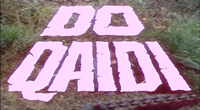
Saamy Full HD Movie Download
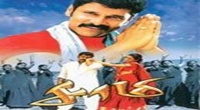
Love 86 Full HD Movie Download

Paap Ki Duniya Full HD Movie Download
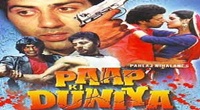
Khuda Kasam (1981) Full HD Movie Download
.jpg)
Trinetra Full HD Movie Download
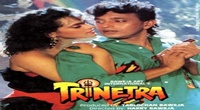
Bhairavi (1996) Full HD Movie Download
.jpg)
Mata Da Darbar Full HD Movie Download
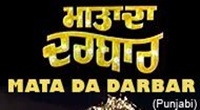
One Man Army-Gulami Full HD Movie Download

Gruha Pravesham Full HD Movie Download

Evadra Rowdy Full HD Movie Download

Harry Potter and the Deathly Hallows: Part 1 Full HD Movie Download

December Pookal Full HD Movie Download

Dil Full HD Movie Download

Allari Mogudu Full HD Movie Download

Chelleli Kapuram Full HD Movie Download
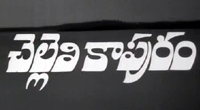
Indru Poi Naalai Vaa Full HD Movie Download

Naatakame Ulagam Full HD Movie Download

Kabul Express Full HD Movie Download
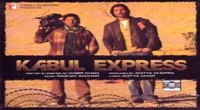
Chandni Full HD Movie Download

Download latest Movie from bollywood
- 1> baaghi 3
- 2> THE SKY IS PINK MOVIE FULL STORY AND REVIEW
- 3> Luka Chuppi
- 4> TO ALL THE BOYS I’VE LOVED BEFORE
- 5> Kabir Singh
- 6> Street Dancer 3D
- 7> Simmba
- 8> Gone Girl
- 9> The Girl Who Lived
- 10> Ludo
- 11> DILWALE DULHANIA LE JAYENGE
- 12> GUILTY
- 13> The Godfather
- 14> Adventures of Rusty
- 15> Sooryavanshi
- 16> Satyameva Jayate 2
- 17> Thappad
- 18> Bhool Bhulaiyaa 2
- 19> KGFChapter 2
- 20> Mardaani 2
- 21> Pinjar
- 22> Shivaji maharaj
- 23> Ek Villian 2
- 24> Hungama 2
- 25> Divergent
- 26> Mumbai Saga
- 27> The Internship
- 28> HIT (telugu)
- 29> Panga
- 30> The perfect date
- 31> 16 December
- 32> Gopala Gopala (Telugu)
- 33> Brahmastra
- 34> Gangubai Kathiawadi
- 35> Manmadhudu
- 36> Nenu local
- 37> Mahanati
- 38> Shatamanam bavathi
- 39> Lagaan
- 40> After
- 41> MOM
- 42> Shamshera
- 43> Raguvaran BTech
- 44> Khakee
- 45> The villain
- 46> OM
- 47> Mr. perfect
- 48> Bueatifull mind
- 49> Hichki
- 50> Gabbar Singh
- 51> Jogi
- 52> Before Sunrise
- 53> Before Sunset
- 54> Before Midnight
- 55> The Big Bull
- 56> Top Gun: Maverick
- 57> The Purge
- 58> The Sky is Pink
- 59> Laxmmi Bomb
- 60> Sadak 2
- 61> Sufna
- 62> Prithviraj
- 63> PK
- 64> Coolie No 1(2020)
- 65> Black Widow
- 66> Dear Zindagi
- 67> Dil Bechara
- 68> PHIR HERA PHERI
- 69> WAR
- 70> Dostana
- 71> RRR: Roudram Ranam Rudhiram
- 72> Maidan
- 73> Dabbang 3
- 74> Chhalaang
- 75> life as we know it
- 76> SherShaah
- 77> Sandeep Aur Pinky Faraar
- 78> Event Horizon
- 79> 83
- 80> Radhe: Your Most Wanted Bhai
- 81> Gunjan Saxena: The Kargil Girl
- 82> Mr India
- 83> Vivah
- 84> Anokha Bandhan
- 85> Ghost
- 86> Bhoot: Part One - The Haunted Ship
- 87> Haseen Dilruba
- 88> Laal Singh Chaddha
- 89> Qismat
- 90> Rajput
- 91> Drive
- 92> Dil Chahta Hai
- 93> Dil Ki Baazi
- 94> Dil Ka Rishta
- 95> Teesri Manzil
- 96> Dil
- 97> Love Aaj Kal
- 98> Khaali Peeli
- 99> Bunty Aur Babli 2
- 100> Atrangi Re
- 101> Gulabo Sitabo
- 102> Jodi
- 103> Suraj Pe Mangal Bhari
- 104> Deewana
- 105> Attack
- 106> Sardar Udham Singh
- 107> Toofan
- 108> THE LOVEBIRDS
- 109> Jersey
- 110> Ginny Weds Sunny
- 111> Thalaivi
- 112> Shiddat
- 113> Angels vs Zombies
- 114> Koi Mil Gya
- 115> Thank God
- 116> Bhuj: The Pride of India
- 117> Hum Aapke Hain Kaun
- 118> The Platform
- 119> Bird Box
- 120> Roohi Afzana
- 121> Torbaaz
- 122> Nikamma
- 123> World War Z
- 124> Extraction
- 125> Train to Busan
- 126> Life of Pi
- 127> SHAADI MEIN JROOR AANA
- 128> Himmat Aur Mehnat
- 129> To All The Boys: P.S. I Still Love You
- 130> Mimi
- 131> Good Newwz
- 132> Shubh Mangal Zyada Saavdhan
- 133> Raabta
- 134> Harry Potter and the Philosopher's Stone
- 135> Harry Potter and the Chamber of Secrets
- 136> Chhapaak
- 137> War of the Worlds
- 138> Harry Potter and the Prisoner of Azkaban
- 139> Harry Potter and the Goblet of Fire
- 140> MURDER MYSTERY
- 141> Shakuntala Devi
- 142> Bachchan Pandey
- 143> Jayeshbhai Jordar
- 144> Sheer Qorma
- 145> Saina
- 146> 'O' Pushpa I hate tears
- 147> Kedarnath
- 148> MS Dhoni The Untold Story
- 149> Chhichhore
- 150> Badhaai Ho
- 151> Unstoppable
- 152> Oz the Great And Powerful
- 153> The Girl on the Train
- 154> Haathi Mere Saathi 2020
- 155> The Conjuring: The Devil Made Me Do It
- 156> Gandhi Se Pehle Gandhi
- 157> The Song of Scorpions
- 158> Srimanthudu
- 159> Hello Guru Prema Kosame
- 160> Beauty and The Beast
- 161> Black Panther
- 162> Charlie and the Chocolate Factory
- 163> Bole Chudiyan
- 164> Fidaa
- 165> Duvvada Jagannadham
- 166> Bruce Lee: The Fighter
- 167> Hyper
- 168> Yaara
- 169> Red (2020)
- 170> Shivam
- 171> That Is Mahalakshmi
- 172> Nishabdham
- 173> Aashram 2020 web series
- 174> Laxmii
- 175> Mismatched
- 176> STUDENT OF THE YEAR 2
- 177> NAIL POLISH
- 178> Ramprasad Ki Tehrvi
- 179> KAAGAZ
- 180> 12 o Clock
- 181> The Power
- 182> bolo hau
- 183> Tribhanga
- 184> JAMUN
- 185> Madam Chief Minister
- 186> Maasaab
- 187> Aadhaar
- 188> Tanhaji
- 189> Bhaagi 3
- 190> Bhootnath
- 191> MALANG
- 192> Jai Mummy Di
- 193> Haathi Mere Saathi 2021
- 194> Shakeela
- 195> Unpaused
- 196> Annayya
- 197> Vamsoddharakudu
- 198> Mrugaraju
- 199> Narasimha Naidu
- 200> Sankranti
- 201> Manasu Maata Vinadhu
- 202> Anjaane
- 203> Apaharan
- 204> Bachke Rehna Re Baba
- 205> Bewafaa
- 206> Roohi
- 207> Radhe
- 208> Zindagi Khoobsoorat Hai
- 209> Yeh Mohabbat Hai
- 210> Yeh Kya Ho Raha Hai?
- 211> The Tomorrow War
- 212> DehradunDiary
- 213> Meri Shaadi Karaoo
- 214> Matruu Ki Bijlee Ka Mandola
- 215> No One Killed Jesica
- 216> Aag Ka Goola
- 217> Eight Million Dollars
- 218> Three Hundred
- 219> Cats and Dog
- 220> Decoy
- 221> Gold Rush
- 222> You Have Got Mail
- 223> Final Destination three
- 224> Tofan
- 225> Jungle
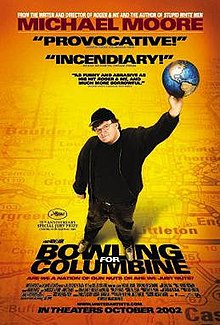 Story of movie Bowling For Columbine :
Story of movie Bowling For Columbine : 